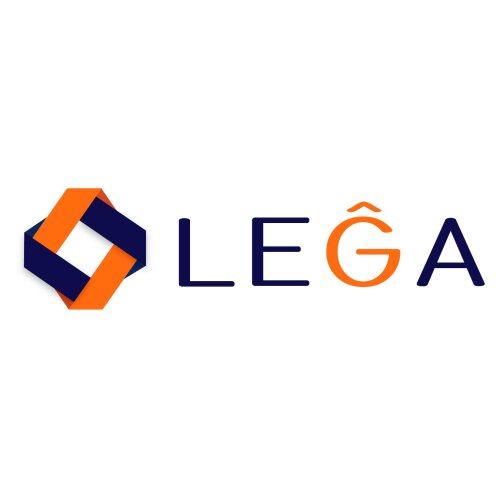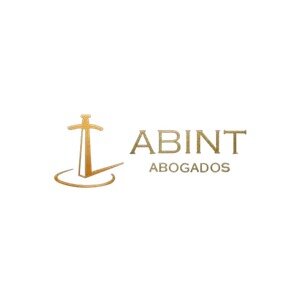Best Debt Capital Markets Lawyers in Venezuela
Share your needs with us, get contacted by law firms.
Free. Takes 2 min.
Or refine your search by selecting a city:
List of the best lawyers in Venezuela
About Debt Capital Markets Law in Venezuela
Debt Capital Markets (DCM) refer to the segment of the financial market where companies, financial institutions, and government entities raise funds through the issuance of debt securities such as bonds, notes, and other fixed income instruments. In Venezuela, the DCM is structured and regulated under various financial laws and overseen by regulatory bodies to ensure transparency, investor protection, and compliance with national interests. The Venezuelan DCM is mainly composed of public offerings by the National Government, state entities, and private corporations, making it a crucial source of funding and investment in the local economy.
Why You May Need a Lawyer
Engaging in Venezuela's Debt Capital Markets often involves complex legal and regulatory requirements. You may need a lawyer in the following scenarios:
- Structuring and issuing debt securities such as bonds or notes
- Ensuring compliance with national regulations and reporting requirements
- Handling cross-border or foreign-currency denominated transactions
- Diligence and negotiation for investments in government or private debt instruments
- Dispute resolution related to debt instruments or investor rights
- Advice on tax implications for both issuers and investors
- Navigating sanctions or exchange control regulations relevant to debt markets
- Facilitating public offerings and private placements
- Interfacing with regulatory bodies for registration and approval processes
- Assisting international clients to understand local market constraints and opportunities
Lawyers specialized in DCM can help avoid costly mistakes, ensure compliance, and provide clarity on potential legal risks.
Local Laws Overview
Debt Capital Markets in Venezuela operate under a framework that includes national financial laws and specific regulations regarding securities. Key components include:
- Securities Market Law (Ley de Mercado de Valores): Sets the general principles and obligations for the issuance, exchange, and management of securities in Venezuela.
- Superintendency of National Securities (SUNAVAL): The primary regulator overseeing the registration and monitoring of all public and private securities offerings.
- Ministry of Economy and Finance: Oversees governmental debt offerings and manages public debt policies.
- Exchange Control Laws: Regulate the conversion and transfer of currency, which impacts foreign-currency denominated debt issuance and servicing.
- Taxation Laws: Set the fiscal obligations for income derived from debt instruments, affecting both issuers and investors.
- Issuer Due Diligence and Disclosure Requirements: Detailed protocols must be followed, including prospectus delivery, risk disclosure, and periodic reporting.
- Investor Protection: Laws are in place to ensure fair treatment, transparency, and access to information for market participants.
The regulatory environment can also be influenced by macroeconomic factors, including inflation, exchange rates, and country risk, which lawyers can help interpret.
Frequently Asked Questions
What is a debt security, and how is it used in Venezuela?
A debt security is a financial instrument representing a loan made by an investor to a borrower, typically used by corporate entities or governments to raise capital. In Venezuela, debt securities can include government bonds, corporate bonds, and similar instruments.
Who can issue debt instruments in Venezuela?
Both public and private entities, such as the Venezuelan government, state-owned companies, and private corporations, can issue debt instruments subject to regulatory approval and compliance with securities laws.
Is it possible for foreign investors to participate in Venezuela’s Debt Capital Markets?
Access for foreign investors may be subject to currency controls, regulatory restrictions, and approval by relevant authorities. Legal advice is essential to understand the specific opportunities and limitations.
How are debt securities registered and regulated?
Debt securities must be registered with the Superintendency of National Securities (SUNAVAL) prior to public offering, with full disclosure of relevant information and compliance with regulatory requirements.
What are the key risks involved in investing or issuing debt in Venezuela?
Risks include political and economic instability, currency devaluation, default risk, legal complexity, and matters related to exchange controls and repatriation of funds.
What ongoing obligations do issuers have after an offering?
Issuers are required to provide continuous disclosure, periodic reports, and updates on material events to SUNAVAL and investors to ensure transparency and compliance.
Are there specific tax considerations for debt securities?
Yes, income generated from interest, capital gains, or other sources related to debt instruments may be subject to local taxes, and exemptions may apply depending on the instrument and parties involved.
Can debt securities be denominated in foreign currency?
It is possible, but such issuances are subject to special regulations, particularly regarding foreign exchange controls and approval by competent authorities.
How do sanctions and international restrictions affect DCM transactions?
International sanctions on Venezuela can impact the participation of foreign investors, the types of transactions permitted, and the movement of capital, requiring specialized legal analysis for compliant structuring.
What should I consider before investing in Venezuelan debt instruments?
Carefully assess issuer credit rating, political and economic climate, currency risks, regulatory obligations, and the potential for negotiating terms and exit strategies. Professional legal advice is strongly recommended.
Additional Resources
Here are some helpful resources for those seeking further information on Debt Capital Markets in Venezuela:
- Superintendency of National Securities (SUNAVAL): The main regulatory body for securities and debt offerings.
- Central Bank of Venezuela (Banco Central de Venezuela): Provides guidelines on exchange controls and monetary policy affecting debt markets.
- Ministry of Economy and Finance: Manages government debt issuance and regulation.
- Professional Bar Associations: Can connect you with lawyers specialized in financial and capital markets law.
- Chambers of Commerce and Financial Market Associations: Offer seminars and information on legal compliance and best practices in capital markets.
Next Steps
If you require legal assistance in Venezuela’s Debt Capital Markets, consider the following steps:
- Gather all relevant documents and information concerning your intended transaction or investment.
- Identify the specific assistance you need, such as transactional support, regulatory compliance, or dispute resolution.
- Research and contact a Venezuelan lawyer or law firm specializing in capital markets or financial regulatory law.
- Prepare questions about local laws, procedural requirements, risks, and strategies appropriate to your situation.
- Ensure your chosen legal representative has experience with SUNAVAL filings and capital markets transactions.
- Stay updated on regulatory changes or new economic measures that may affect your interests.
Professional legal guidance can make the complex process of navigating Debt Capital Markets in Venezuela more secure, efficient, and successful.
Lawzana helps you find the best lawyers and law firms in Venezuela through a curated and pre-screened list of qualified legal professionals. Our platform offers rankings and detailed profiles of attorneys and law firms, allowing you to compare based on practice areas, including Debt Capital Markets, experience, and client feedback.
Each profile includes a description of the firm's areas of practice, client reviews, team members and partners, year of establishment, spoken languages, office locations, contact information, social media presence, and any published articles or resources. Most firms on our platform speak English and are experienced in both local and international legal matters.
Get a quote from top-rated law firms in Venezuela — quickly, securely, and without unnecessary hassle.
Disclaimer:
The information provided on this page is for general informational purposes only and does not constitute legal advice. While we strive to ensure the accuracy and relevance of the content, legal information may change over time, and interpretations of the law can vary. You should always consult with a qualified legal professional for advice specific to your situation.
We disclaim all liability for actions taken or not taken based on the content of this page. If you believe any information is incorrect or outdated, please contact us, and we will review and update it where appropriate.
Browse debt capital markets law firms by city in Venezuela
Refine your search by selecting a city.













